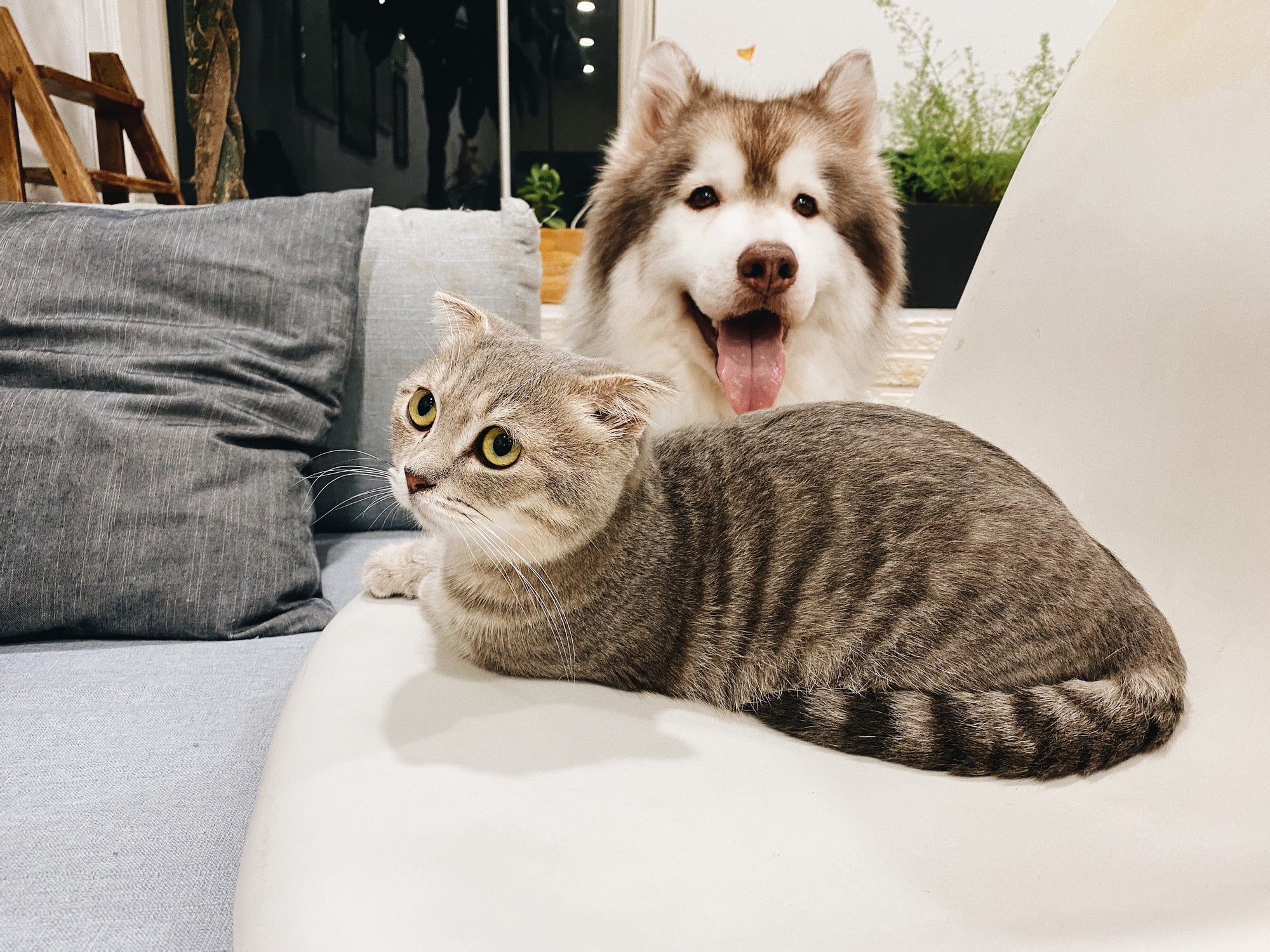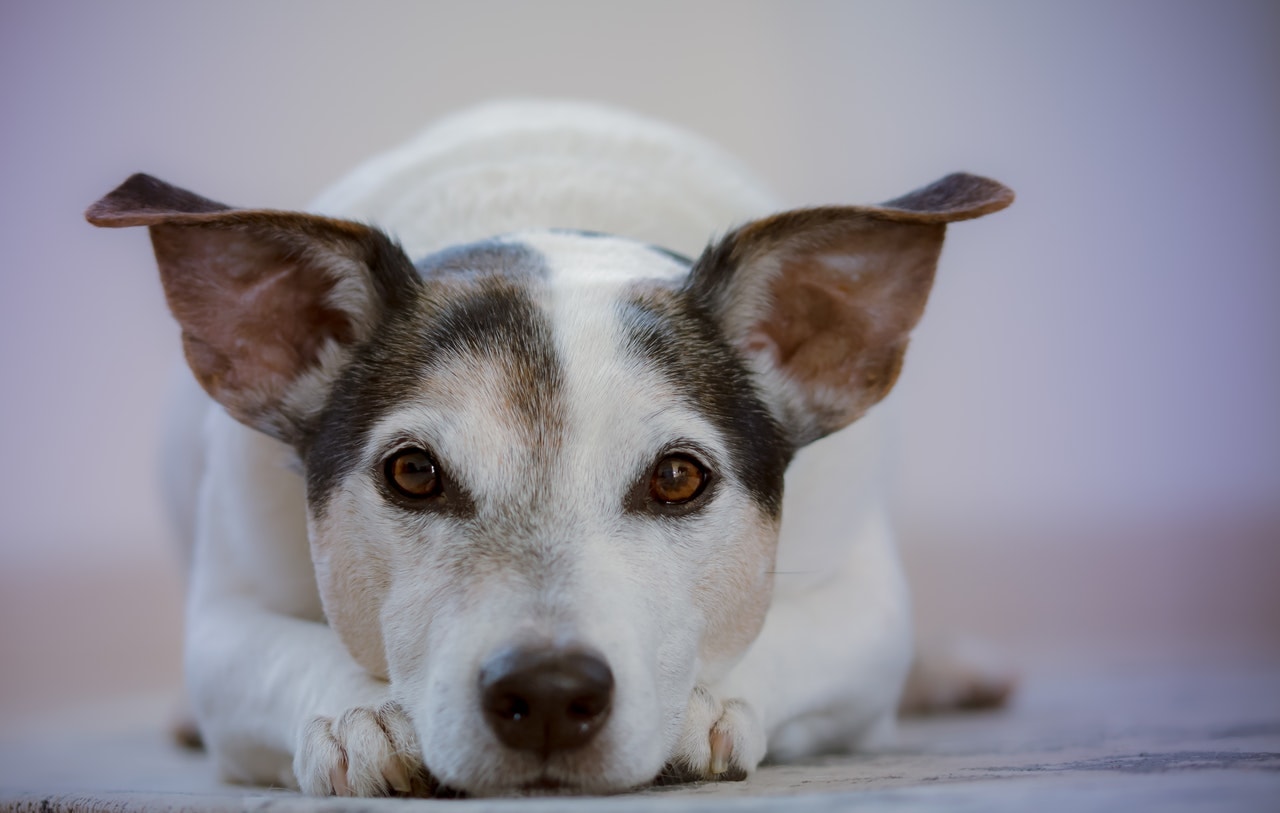Food allergies are common in cats and dogs, and can lead to a wide range of painful and uncomfortable symptoms. In today's post, we'll take a look at the causes and symptoms of food allergies in pets. We'll also share some practical advice to help you treat and prevent the condition.
What Is a Food Allergy?
A food allergy is an over-response of the immune system to a specific food ingredient. When this happens, the body produces antibodies to counter the perceived threat. These antibodies are responsible for allergy symptoms in pets.
Since repeated exposure to a food ingredient is needed to produce an allergic response, many pets develop an allergy to a food ingredient in their regular diet. Any ingredient can cause an allergic reaction, but food allergies in pets are most commonly associated with proteins such as meat, eggs, and dairy.
It's important to note that food intolerance is different from food allergies. This is because they do not involve an immune response. Instead, food intolerance occur when the body is unable to process certain foods effectively. One example is lactose intolerance, which is caused by a deficiency of the intestinal enzyme lactase.
Symptoms of Food Allergies in Pets
Pets with food allergies often suffer from symptoms such as frequent ear infections and chronic itchiness and skin irritation. Other common symptoms include gastrointestinal issues such as vomiting and diarrhea. These symptoms are similar to those of seasonal allergies, but are likely to occur year-round.
In some cases, pets with food allergies may display more generalized symptoms. These include weight loss, lethargy, and behavioral changes. If you suspect that your pet has developed a food allergy, please visit your veterinarian as soon as possible so they can be correctly diagnosed and treated.
Treating Food Allergies in Pets
In order to treat a food allergy, it's important to identify the ingredient that's triggering an immune response. The most reliable way to do this is by placing your pet on an elimination diet with the help of your veterinarian. This involves feeding a specialized diet that's restricted to novel ingredients your pet hasn't eaten in the past. Foods will then be slowly reintroduced one by one, to identify the ingredient that's responsible for the reaction. Usually, an elimination diet will last for several months. During this time, it's important to stick closely to the diet and avoid feeding your pet foods or treats that may contain allergens.

Preventing Food Allergies in Pets
Although some cats and dogs are predisposed to food allergies, feeding a healthy, balanced diet can help minimize the chance of them developing the condition. We recommend feeding a complete and balanced diet that contains living, raw, fresh, and species-appropriate ingredients.
Some holistic vets believe that feeding the same protein for a long period of time may lead to the development of a protein allergy in immune-compromised pets or pets with gastrointestinal issues. Because of this, we also recommend rotating proteins every 3 or 4 months to prevent an over-active immune response to a familiar protein. For example, feed venison for 3 months, then switch to turkey for the next 3 months.
There are now many excellent commercial diets on the market that are carefully formulated to be nutritionally balanced. Look for foods with a high-quality protein source as the main ingredient, and avoid those with low-quality filler ingredients such as corn, meat by-products, and artificial and chemical preservatives.
It's also possible to prepare a balanced, species-appropriate raw food diet at home. A good diet should consist of ingredients such as muscle and organ meats, raw eggs, and fresh fruits and vegetables. If you decide to feed a home-prepared diet, we recommend consulting with a veterinary nutritionist who will review the diet to make sure it meets your pet's dietary needs.
Coconut Oil for Food Allergies
Did you know that organic virgin coconut oil can help treat and prevent food allergies in pets? The primary "super ingredient" in coconut oil is lauric acid. This medium-chain fatty acid (MCFA) has been clinically proven to provide a wide range of health benefits. These include the power to manage allergies, protect the skin and coat, and promote a healthy gastrointestinal tract.
The lauric acid content in coconut oil provides antifungal, antibacterial, antiviral, and antimicrobial properties. This means that coconut oil can help prevent and treat allergic reactions. Coconut oil is particularly good at soothing itchy and inflamed skin, and promotes the rapid healing of painful conditions such as hotspots. It also boosts the immune system, preventing infection and disease.
In order for coconut oil to be effective, it's important to choose a therapeutic-grade oil such as CocoTherapy Organic Virgin Coconut Oil. Our oil contains at least 53% lauric acid (compared to 40% or less in grocery store brands). It also contains capric acid and caprylic acid. These MCFAs are known for their potent antifungal effects and are highly beneficial to overall health.
Thanks to its high levels of caprylic acid (a whopping 7000mg!), our brand-new product, CocoTherapy TriPlex™ MCT-3 Oil, is also incredibly effective at treating and preventing food allergies. It protects against yeast overgrowth, prevents and treats yeast infections, and kills candida yeast cells on the skin and in the gut. This means that it provides excellent support for your pet's digestive and skin health.
Thanks for reading! We hope you enjoyed today's post. Want to check out the very best of this year's articles from CocoTherapy all in one place? Check back next week for our mega-post, Best of the CocoTherapy Blog 2019!



